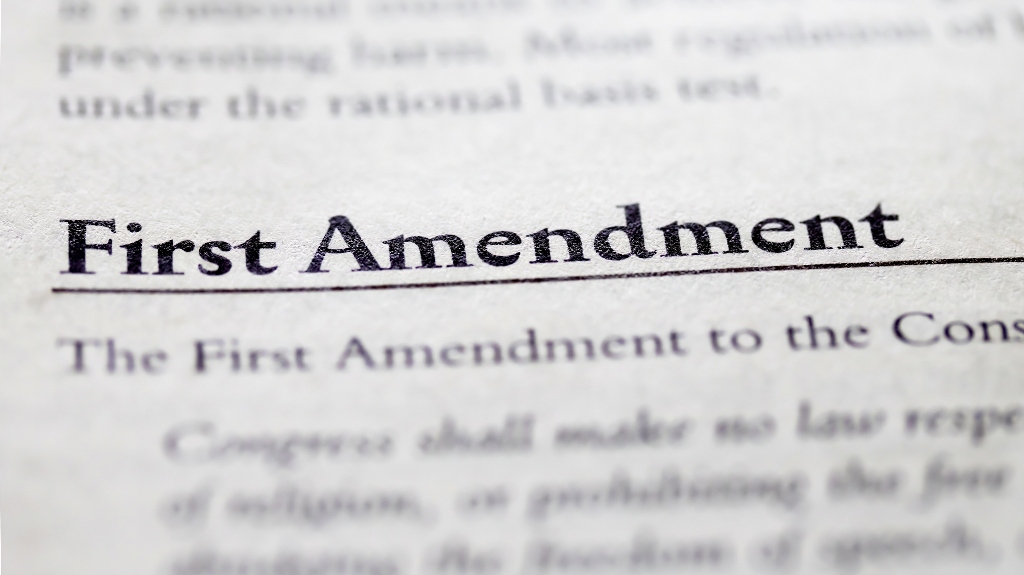In today’s hyperconnected world, social media has become the go-to platform for sharing personal views on politics, current events, and workplace issues. While the First Amendment protects freedom of speech, federal employees must navigate a unique set of rules and restrictions that can blur the line between protected speech and workplace misconduct. A social media post or public comment that seems harmless to a private citizen could lead to serious consequences for a federal employee—including disciplinary action, security clearance issues, or even removal. Understanding your First Amendment rights as a federal employee is essential to safeguarding both your voice and your career.
The First Amendment and Federal Employment
As a federal employee, you do not give up your First Amendment rights when you enter public service. However, those rights are limited in the workplace to balance your right to speak with the government’s interest in maintaining an efficient, disruption-free workforce.
Courts use the Pickering balancing test to determine whether a federal employee’s speech is protected. Under this test, speech made as a private citizen on matters of public concern may be protected, while speech made as part of official duties is generally not. Even protected speech can be limited if it disrupts workplace operations, undermines trust, or affects agency effectiveness.
Key points to understand:
- Speech in your official capacity (emails, reports, official statements) is usually not protected.
- Speech as a private citizen may be protected if it addresses a matter of public concern and does not disrupt agency operations.
- Whistleblower protections may apply if you disclose legal violations, gross mismanagement, waste, or dangers to public safety through proper channels.
Social Media and Political Activity
Social media complicates things even further. Posts, likes, or comments made off-duty and off-site can still affect your job. Agencies may discipline employees for online speech if it:
- Discloses sensitive or nonpublic information
- Appears to threaten, harass, or bully coworkers
- Damages public trust in the agency
- Disrupts the efficiency or morale of the workplace
Additionally, the Hatch Act places strict limits on partisan political activity by federal employees, especially while on duty or using government resources. Violating these rules—even unintentionally—can trigger investigations and serious penalties.
What This Means for You
While federal employees have more free speech rights than military members, those rights are still not absolute. One ill-considered post or comment can spark an investigation, jeopardize your security clearance, or put your job at risk.
That’s why it’s critical to understand the boundaries of your First Amendment rights as a federal employee. If you are facing disciplinary action based on something you said—or if you simply want clarity about what you can and cannot say—you don’t have to navigate this alone.
Our firm regularly represents federal employees in cases involving speech, discipline, and workplace rights. We can assess your situation, explain your protections, and defend your rights while safeguarding your career.
Your voice matters—but so does your future. Get legal advice before you speak out or if you’ve been accused of crossing the line.
About the Author
This article was written by David Cisek, who has served as a military defense attorney, federal prosecutor, and federal judge. This experience gives him a unique 360-degree view of the courtroom and federal workplace law, allowing him to guide federal employees through complex legal challenges with insight and confidence.
You can reach David Cisek by contacting Patriots Law Group of Lyons & Hughes, P.C. via our website (www.patriotslaw.com) or via phone (301-952-9000). David works from Patriots Law Group’s San Antonio, Texas law office location.
Disclaimer:
The information provided on this blog is for general informational purposes only and is not intended to be, nor should it be construed as, legal advice, for any specific scenario. Reading this blog, commenting on posts, or contacting the author does not create an attorney-client relationship. Laws vary by jurisdiction and individual circumstances; you should consult a qualified attorney licensed in your area for advice specific to your situation.

